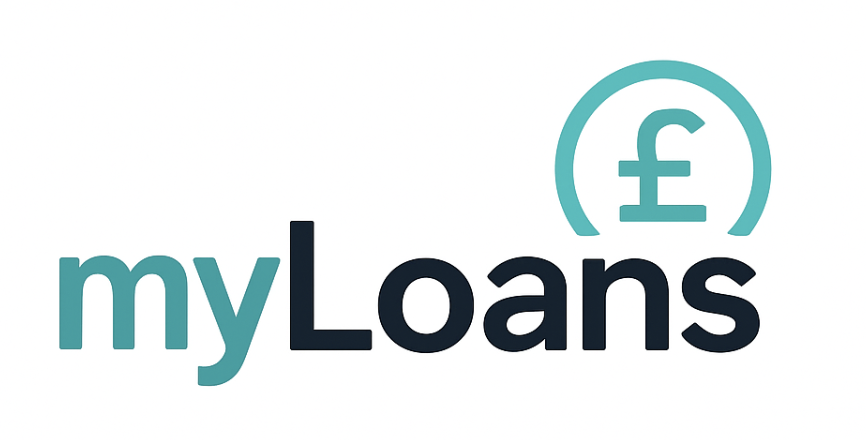Advance Payday Loans: Pros, Cons
When money runs short before payday, the temptation to borrow against future income is strong. In the UK, options such as advance payday loans, wage advance UK schemes, payroll advances, and other loans and cash advances provide quick cash solutions. These are designed to help cover urgent or unexpected costs.
While they can be useful in emergencies, they also carry risks and costs that every borrower should understand. This guide explores how advance payday loans and payroll advances work, their benefits and drawbacks, and what alternatives exist.
What Are Advance Payday Loans?
An advance payday loan is a short-term loan designed to give you access to funds before your next wage arrives. Payday loans in the UK are regulated by the Financial Conduct Authority (FCA), which sets strict rules on fees and interest.
Key Features of Payday Loans in the UK
-
Loan amounts are usually small, typically between £50 and £1,000.
-
Repayment is often due in full on your next payday.
-
Interest and charges are capped at 0.8% per day.
-
You cannot be charged more than double the original loan amount.
-
Default fees are limited to £15.
These limits were introduced to prevent borrowers from falling into a cycle of unmanageable debt, which was a common problem before payday loan reforms.
Why People Use Payday Loans
Advance payday loans are often used to cover:
-
Emergency car or home repairs.
-
Shortfalls in household bills.
-
Urgent medical or dental costs.
-
Unexpected expenses before wages clear.
The main attraction is speed and convenience. Many payday loan providers offer online applications with decisions in minutes, and funds can be transferred to your account the same day.
Loans and Cash Advances
The phrase loans and cash advances covers more than payday loans alone. It can include:
-
Credit card cash advances, where you withdraw cash from an ATM using your card. Interest is charged immediately, usually at higher rates than purchases.
-
Bank overdrafts, which allow you to spend more than your available balance, sometimes a cheaper option than payday loans depending on your bank’s fees.
-
Employer-backed payroll advance or wage advance UK services, where staff can access a portion of their earned pay before payday.
Understanding the differences between these forms of borrowing is key to deciding which option suits your situation.
Wage Advance UK Schemes
A wage advance UK scheme, sometimes known as a payroll advance or advance in pay, is when an employer allows you to draw part of your wages early. These schemes are increasingly offered through third-party platforms linked to employers’ payroll systems.
How Wage Advances Work
Employees can usually withdraw a percentage of their earned income before payday. When payday arrives, the amount advanced is deducted from the salary.
Benefits of Wage Advances
-
Avoids turning to high-cost lenders.
-
Funds can be accessed quickly and conveniently.
-
Reduces the need for credit checks.
Considerations
While wage advances can be cheaper than payday loans, they should not replace proper budgeting. Frequent use may leave you short of income at the end of the month, leading to financial stress.
Payroll Advance
A payroll advance is similar to a wage advance but usually provided directly by the employer rather than through a third-party platform. This arrangement has been common in certain sectors for years, often to help staff with cash flow difficulties.
Payroll advances are less common today because employers may prefer directing staff to regulated financial products. However, some companies continue to offer them as an employee benefit.
The Pros of Advance Payday Loans and Cash Advances
-
Speed: Funds are often available within hours.
-
Accessibility: Borrowers with poor credit history may still qualify.
-
Flexibility: Money can be used for almost any urgent expense.
-
Simplicity: Online applications make the process quick and easy.
The Cons of Advance Payday Loans and Cash Advances
-
High cost: Payday loans remain one of the most expensive forms of borrowing.
-
Short repayment terms: Most require full repayment within weeks.
-
Debt cycle risk: Borrowers may take new loans to cover old ones.
-
Limited borrowing: Small amounts may not cover larger financial needs.
Payday Loans vs Wage Advances
It is important to distinguish between regulated payday loans and employer-backed wage or payroll advances. Payday loans are commercial products offered by lenders, with interest and fees attached. Wage advances and payroll advances are linked to your employment and usually do not involve traditional interest charges, although some providers add small service fees.
For employees with access, wage advance UK services are generally less costly than payday loans. However, payday loans remain an option for those without employer-backed schemes.
Eligibility and Application Process
Payday Loan Applications
-
Proof of income and a UK bank account are required.
-
Applications are typically made online.
-
Decisions are often instant, with funds paid the same day.
Wage or Payroll Advances
-
Eligibility depends on your employer.
-
You can usually only withdraw a portion of wages already earned.
-
Repayment is deducted directly from your salary.
Impact on Credit and Financial Health
Payday loans may affect your credit file. Lenders often report missed payments to credit reference agencies, which can damage your credit score. Even if payments are made on time, multiple payday loan applications can signal financial stress to future lenders.
Wage advances usually do not appear on your credit report, but repeated reliance may still impact your long-term financial stability by leaving you short of funds each month.
Alternatives to Advance Payday Loans
Before choosing an advance payday loan or payroll advance, consider alternatives:
-
Credit unions, which offer small loans at affordable rates.
-
Interest-free budgeting loans for those on certain benefits.
-
Bank overdrafts, which can sometimes be cheaper than payday loans.
-
0% credit cards for eligible borrowers.
-
Employer hardship funds or staff support schemes.
-
Free debt advice services such as StepChange, Citizens Advice, or National Debtline.
Responsible Borrowing Tips
-
Only borrow what you truly need.
-
Read all terms and conditions carefully.
-
Ensure you have a repayment plan in place.
-
Avoid repeat borrowing that can create a cycle of debt.
-
Explore alternatives before taking out a high-cost loan.
Final Thoughts
Advance payday loans, wage advance UK services, and payroll advances can all provide quick access to cash when needed. However, they are not risk-free. Payday loans in particular remain one of the most expensive borrowing options, despite FCA regulation capping fees and charges.
For employees with access, a wage or payroll advance may be a safer, lower-cost way to bridge the gap until payday. But all short-term borrowing should be approached with caution. Planning ahead, budgeting effectively, and seeking alternatives can help you avoid reliance on loans and cash advances.
By understanding how these products work and weighing the pros and cons, you can make informed decisions that protect your financial health and support long-term stability.
Alternatives to Payday Loans | Safer Borrowing Options
Payday loans are often marketed as a quick fix for cash emergencies, but they are not the only option available. Whether you’re facing an unexpected bill, car repair, or temporary cash shortfall, there are several alternatives to payday loans that may offer lower...
Payday Loans with Bad Credit | Direct Lender Options
If you’ve been refused credit elsewhere and are wondering whether you can still get a payday loan with bad credit, you’re not alone. Thousands of people in the UK search every month for options like “payday loans with bad credit” or “direct lender payday loans”. While...
Personal Loan Debt Consolidation UK – Is It Right for You?
Juggling multiple credit cards, overdrafts, or loans can be stressful and expensive. A debt consolidation loan allows you to combine everything into a single monthly repayment, often at a lower interest rate. In 2025, UK lenders from high street banks to online...
Emergency Loans UK – How to Borrow Fast in 2025
When an urgent expense hits — like car repairs, medical bills, or a broken boiler — quick access to funds can be essential. In 2025, emergency loans in the UK provide a way to borrow fast, with some lenders offering same-day decisions and payouts. This guide explains...
Top 10 Personal Loan Providers UK 2025 – Rates, Features & Eligibility
The UK personal loan market in 2025 offers more choice than ever, with banks, supermarkets, online lenders, and credit unions all competing for borrowers. The best deal for you depends on your credit score, loan size, and repayment term — but comparing providers side...
Best Debt Consolidation Loans UK 2025 | Top Options
Managing multiple debts can feel overwhelming, especially with credit cards, overdrafts, and personal loans all charging different interest rates. A debt consolidation loan can simplify your finances by rolling everything into one fixed monthly repayment — often at a...
Best Bad Credit Loans UK 2025 – Top Lenders Compared
Having a poor credit score, CCJs, or past defaults doesn’t mean borrowing is out of reach. In 2025, several UK lenders specialise in products designed for people with bad credit — offering smaller loans, flexible repayment terms, and eligibility checks that won’t harm...
Home Repair Loans UK – How to Cover Unexpected Costs in 2025
A leaking roof, broken boiler, or urgent plumbing issue can quickly turn into an expensive problem — often when savings aren’t available. In 2025, home repair loans in the UK provide a way to spread the cost of essential fixes into manageable monthly repayments. This...
Green Energy Loans UK – How to Finance Eco-Friendly Home Improvements in 2025
Eco-friendly upgrades such as solar panels, insulation, heat pumps, and EV chargers can cut energy bills and boost property value — but they require a significant upfront investment. In 2025, green energy loans in the UK provide a way to spread the cost of sustainable...
Moving House Loans UK – How to Cover Relocation Costs in 2025
From deposits and removal vans to solicitor fees and new furniture, moving house in the UK can quickly add up to thousands of pounds. Not everyone has savings set aside to cover these costs upfront. In 2025, moving house loans in the UK provide a way to spread...
Education Loans UK – How to Fund Studies and Professional Courses in 2025
Not all education in the UK is covered by government student finance. Postgraduate degrees, professional qualifications, and private training often require self-funding — with tuition fees and course costs running into thousands of pounds. In 2025, education loans in...
Holiday Loans UK – How to Spread the Cost of Travel in 2025
Holidays can be some of the most rewarding experiences of the year, but they often come with a price tag that’s hard to cover upfront. From flights and hotels to all-inclusive packages and once-in-a-lifetime trips, the costs can add up quickly. In 2025, holiday loans...
Best Personal Loans UK 2025 – Top Lenders Compared
The UK personal loan market in 2025 is more competitive than ever, with high street banks, supermarkets, online lenders, and credit unions all offering products to suit different needs. Choosing the right provider can save you hundreds in interest and ensure...
Medical Loans UK – How to Finance Healthcare Costs in 2025
While the NHS covers most essential treatment, waiting lists, private care, and specialist procedures mean many people face out-of-pocket medical expenses. From dental work and fertility treatment to cosmetic surgery and urgent private healthcare, costs can run into...
Car Loans UK – Personal Loan vs Hire Purchase vs PCP in 2025
Buying a car in 2025 usually means more than just choosing the right vehicle — it also means deciding how to pay for it. In the UK, the three main options are a personal loan, hire purchase (HP), or personal contract purchase (PCP). Each has its own advantages,...
















